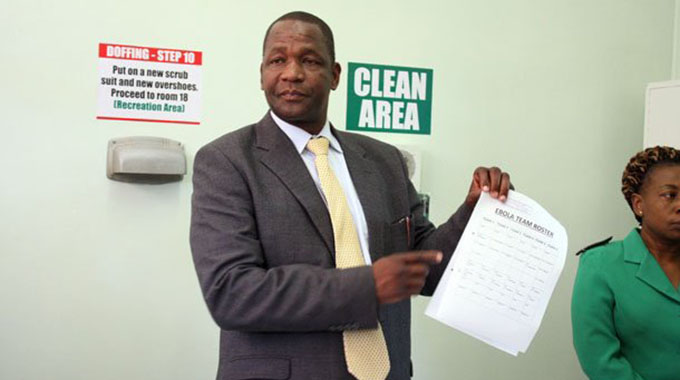Rains worsen pothole menace

Ivan Zhakata Herald Correspondent
Rains that are falling countrywide might have come as a blessing to most people, especially farmers, but for motorists in Harare, they are slowly becoming a curse as potholes proliferate and the clay used to temporarily fill the holes is washed away.
It does not matter which direction one travels — north, east, south or west — the pothole menace is now a cause for concern.
Drivers can no longer drive straight off major highways, where repairs are more frequent.
So poor have most roads become that it is now faster to drive off road and safer for the vehicles too.
The situation is worse in high-density suburbs.
Driving at night has become a challenge because of potholes which are usually difficult to spot during this time.
Motorists are now having to frequently replace their tyres and having the suspension of their vehicles fixed.
A survey by The Herald showed that on average, suspension repairs for small vehicles are anything upward of $5 000.
A brand new size 13 tyre for small vehicles costs $1 000, while used tyres from street corners cost between $500 and $750 depending on condition.
With the city appearing to be overwhelmed by the situation, some residents have taken it upon themselves to fill the potholes.
A Kuwadzana Extension resident who owns a fleet of lorries has been collecting gravel and dumping it on roadsides to mend the potholes.
Unemployed youths in some suburbs are raising cash through filling potholes and asking for tokens from road users.
Harare Mayor Councillor Herbert Gomba blamed the poor state of the city’s roads on the Zimbabwe National Roads Administration (Zinara) for not releasing money to council for road repairs.
“This is an unfunded mandate which we were given without money being available for us to attend to residents’ needs,” he said.
“We are supposed, in terms of the law, to get money from Zinara, and Zinara has not been giving us money, so I am not sure how we are supposed to be working.
“We have been thinking outside the box to an extent that we intend to borrow money using dividends from City Parking, but these are our own initiatives and these are merely coming on the basis that those who are supposed to give us the funding are not.
“It is prudent that Zinara introspects. I am totally disturbed because I would like to believe that some, if not most of the managers or employees at Zinara are residents of Harare and I am not sure how they feel when they are driving on these roads.”
Clr Gomba said in 2009, council was collecting $9 million a term in licence fees but was now getting far less than that from Zinara over a three-year period.
“It is something that must touch their hearts that they are on these roads,” he said.
“It is disturbing on our part as the local authority and we are of the view that since we are talking of devolution, it must be understood in the context of decentralisation and giving powers to local authorities to be able to get licence fees direct from the road users.”
Efforts to get a comment from Zinara were unsuccessful at the time of going to print.
In 2018, Government initiated the Emergency Road Rehabilitation Programme (ERRP) in order to rehabilitate the country’s road network that had been extensively damaged during the 2016/2017 rainy season.
In Harare, this saw major arterial roads largely fixed, but the suburban roads were hardly touched and are continually getting worse.










Comments